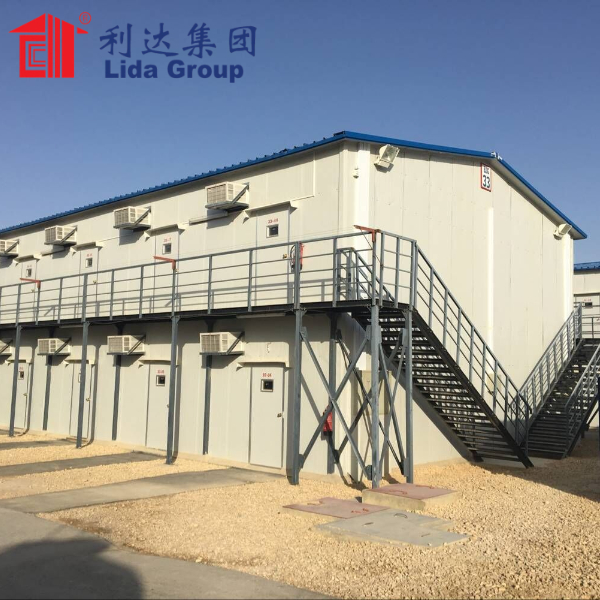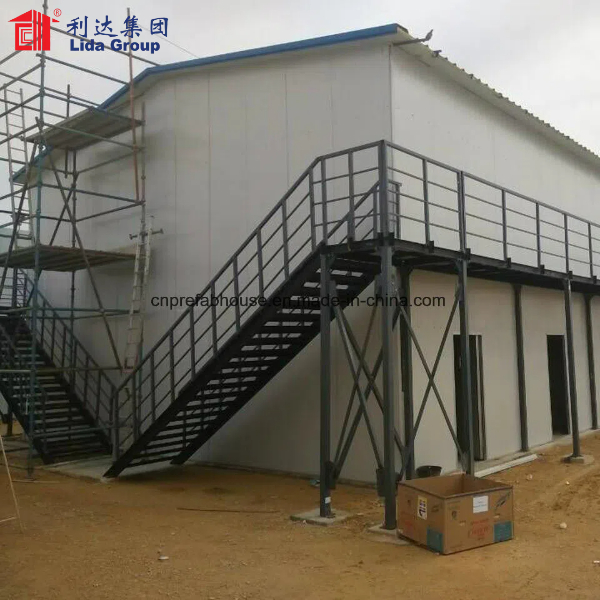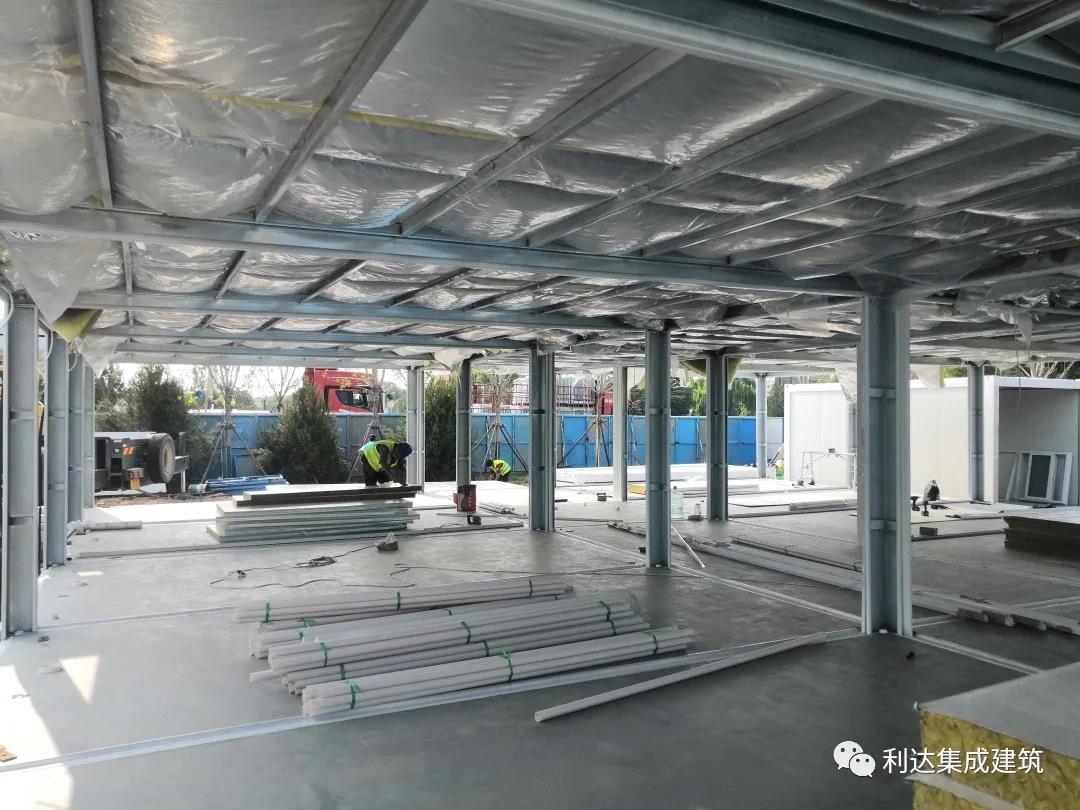In the modern landscape of industrial work, where labor forces frequently relocate for projects, the need for suitable and comfortable housing solutions has become increasingly important. Labor camps serve as temporary residences for workers in sectors like construction, mining, oil and gas, and agriculture. As the demand for effective workforce housing grows, customizable prefabricated houses have emerged as a transformative solution. This article explores how customizable prefab houses enhance the labor camp experience, focusing on their benefits, design flexibility, sustainability, and the overall improvement in worker well-being.
The Need for Improved Labor Camp Housing
Understanding Labor Camps
Labor camps are essential for housing transient workers who need accommodation near their work sites. These camps often face significant challenges, including inadequate facilities, high costs, and lengthy construction times associated with traditional building methods. Given the temporary nature of these housing solutions, it is crucial to provide environments that support the well-being and productivity of workers.
Challenges in Traditional Labor Camp Housing
- Quality of Living: Traditional labor camps may often lack basic amenities, leading to poor living conditions that can affect worker morale and productivity.
- Cost Inefficiency: Conventional construction methods can be expensive and time-consuming, resulting in delayed housing availability.
- Inflexibility: Traditional structures are often not designed to adapt to changing workforce sizes or needs, leading to inefficiencies.
- Environmental Impact: Traditional building methods can generate significant waste and have a larger carbon footprint.
The Rise of Customizable Prefab Houses
What Are Customizable Prefab Houses?
Customizable prefab houses are structures manufactured off-site in a factory setting, designed for easy transport and assembly at the construction site. They can be tailored to meet specific needs, including layout, amenities, and finishes. This flexibility makes them particularly suitable for labor camps, where requirements may vary widely.
Advantages of Customizable Prefab Houses
- Cost-Effectiveness: The factory-based construction of prefab houses allows for significant cost savings due to reduced labor costs and material waste.
- Speed of Construction: Prefab houses can be assembled rapidly, enabling quick deployment of housing solutions for workers in urgent need.
- Quality Control: Building in a controlled environment ensures high-quality construction standards and reduces the risk of defects.
- Flexibility and Scalability: Customizable designs allow for easy modifications to suit different workforce sizes and project requirements.
- Sustainability: Prefab houses often utilize sustainable materials and energy-efficient designs, reducing their environmental impact.
Enhancing Labor Camp Experiences
Customization: A Key Feature
One of the primary benefits of customizable prefab houses is the ability to tailor designs to meet specific needs. This customization can include:
- Flexible Layouts: Prefab houses can be designed as single-occupancy units or multi-occupancy dormitories, depending on the workforce size. This flexibility allows companies to optimize space usage.
- Integrated Amenities: Customizable options can incorporate essential amenities such as kitchens, bathrooms, and common areas. This ensures that workers have access to comfortable living conditions.
- Aesthetic Choices: The interior and exterior finishes of prefab houses can be customized to create inviting and pleasant environments, improving worker satisfaction.
Improving Comfort and Well-Being
Comfortable living conditions are crucial for worker well-being. Customizable prefab houses can enhance comfort through various design features:
- Quality Materials: Utilizing high-quality insulation and durable materials ensures that workers are protected from the elements and enjoy a pleasant living environment.
- Personal Space: Providing private sleeping quarters or individual units allows workers to have personal space, which is essential for mental health and relaxation.
- Common Areas: Including communal dining and recreation spaces fosters social interaction among workers, promoting community and reducing feelings of isolation.
Psychological Benefits of Quality Housing
Research indicates that comfortable and well-designed living conditions can lead to improved mental health and job performance. By investing in customizable prefab housing, companies can:
- Enhance Worker Satisfaction: Comfortable living environments can lead to higher job satisfaction and lower turnover rates.
- Boost Productivity: Happy and well-rested workers are more productive, contributing to project success.
- Reduce Stress: Providing quality housing can alleviate stress associated with living away from home, improving overall worker morale.
Sustainability in Customizable Prefab Housing
Commitment to Environmental Responsibility
As the construction industry faces increasing pressure to adopt sustainable practices, customizable prefab houses offer a viable solution. Key aspects of their sustainability include:
- Reduced Waste: Factory construction allows for better material management, significantly reducing waste compared to traditional building methods.
- Sustainable Materials: Many prefab manufacturers prioritize the use of eco-friendly materials, minimizing the carbon footprint associated with housing construction.
- Energy Efficiency: Prefab houses can be designed with energy-efficient features, such as high-quality insulation, energy-efficient windows, and the option for renewable energy sources like solar panels.
Long-Term Environmental Benefits
Investing in sustainable prefab housing not only benefits the environment but also provides long-term cost savings. Reduced energy consumption and lower maintenance costs contribute to the overall financial viability of labor camps.
Case Studies: Successful Implementation of Customizable Prefab Houses
Mining Industry
In a remote mining operation, a company faced significant challenges in providing adequate housing for its workforce. Traditional construction methods were impractical due to harsh weather conditions and logistical difficulties. By opting for customizable prefab houses, the company was able to quickly establish comfortable living quarters.
The rapid deployment of modular units allowed for the creation of a labor camp that included private sleeping quarters and communal living spaces. This improved the quality of life for workers, leading to increased productivity and reduced turnover.
Construction Projects
A large construction firm undertaking a major infrastructure project needed a flexible housing solution for its workers. Customizable prefab houses allowed the firm to provide adequate accommodation rapidly. The company was able to create a labor camp that included essential amenities, such as kitchens and recreation areas.
Worker satisfaction improved significantly, resulting in higher levels of engagement and productivity on-site. The customizable nature of the prefab houses allowed the firm to adapt to changing workforce sizes throughout the project.
Agricultural Labor Camps
In the agricultural sector, a cooperative sought to provide temporary housing for seasonal workers. The cooperative implemented customizable prefab houses, enabling it to quickly establish housing that could be easily expanded or relocated as needed.
The positive impact on worker satisfaction led to increased productivity during peak harvest times. By providing comfortable and adaptable housing, the cooperative successfully met the needs of its transient workforce.
Challenges and Considerations
Initial Investment
While customizable prefab houses offer numerous benefits, the initial investment can be a concern for some companies. However, it is essential to consider the total cost of ownership, including long-term savings on maintenance and energy costs.
Regulatory Compliance
Navigating local building codes and regulations can pose challenges when implementing customizable housing solutions. It is crucial for companies to work closely with local authorities to ensure compliance with all necessary standards.
Cultural Sensitivity
In regions with diverse cultural backgrounds, it is important to consider the needs and preferences of the workforce when designing housing solutions. Customizable options allow for adaptations that respect local customs and practices, ensuring that living spaces are suitable for all workers.
The Future of Customizable Prefab Housing Solutions
As the demand for efficient and sustainable housing solutions continues to grow, customizable prefab houses are expected to play an increasingly important role in labor camp design. Innovations in construction technology, materials, and design practices will further enhance the appeal of these units.
Technological Advancements
The integration of smart technology into customizable prefab housing is an emerging trend. Features such as smart climate control, energy management systems, and advanced security measures can improve the living experience for workers while promoting sustainability.
Global Demand
As industries worldwide seek to improve living conditions for transient workers, the global demand for customizable prefab housing solutions is expected to rise. Companies that embrace these innovative housing solutions will not only enhance their operational efficiency but also demonstrate their commitment to worker welfare and sustainability.
Conclusion
Customizable prefab houses represent a significant advancement in the approach to labor camp design. By prioritizing comfort, functionality, and sustainability, these innovative solutions enhance the living conditions for workers while addressing the unique challenges faced by labor camps. As industries continue to evolve, the advantages of customizable prefab housing will become increasingly evident, paving the way for a future where affordable and comfortable living is accessible to all workers. Embracing these designs is not just a matter of convenience; it is a commitment to the future of worker welfare and sustainable practices in labor management.
Contact Us
Post time: Dec-19-2024



